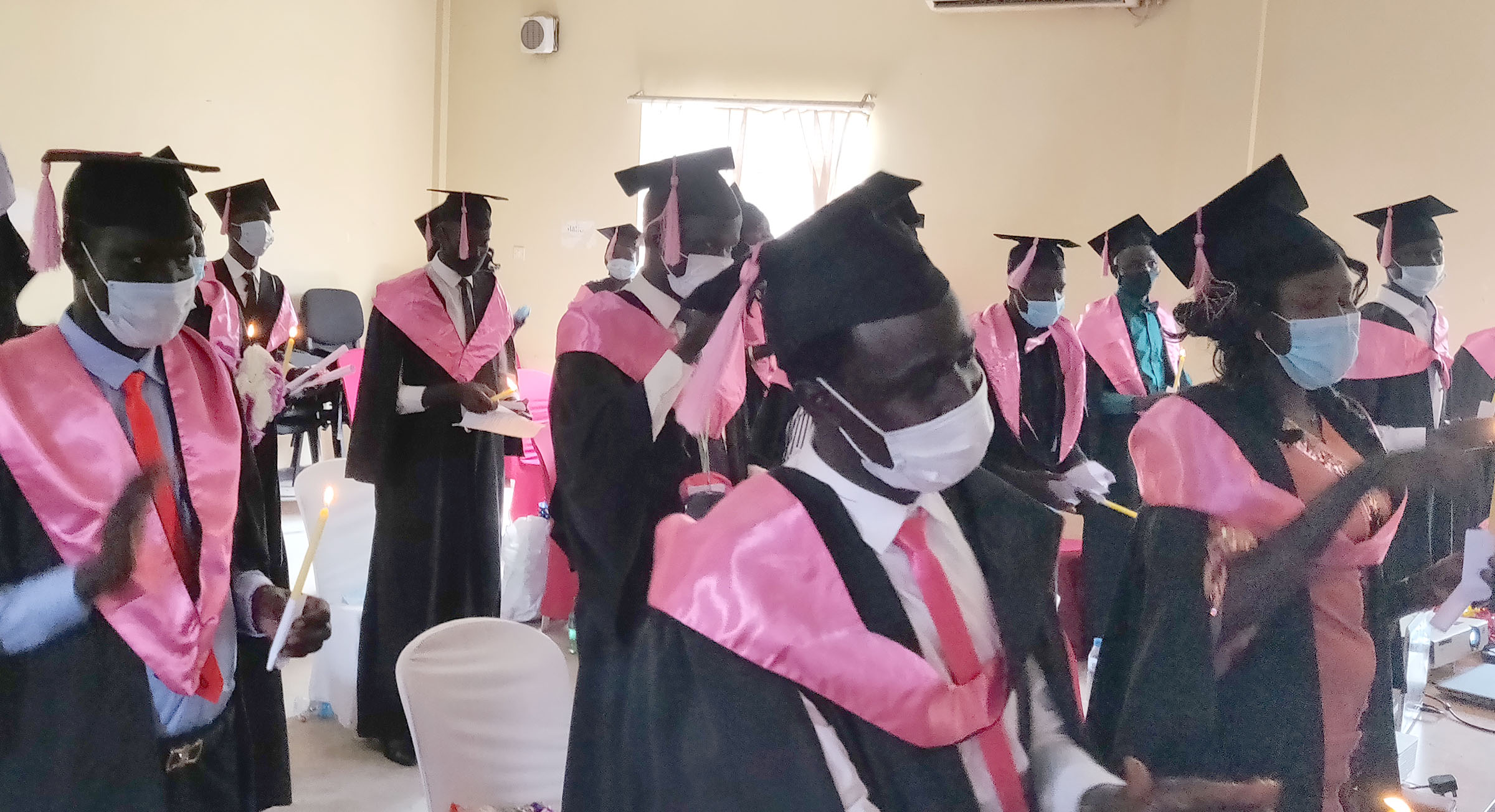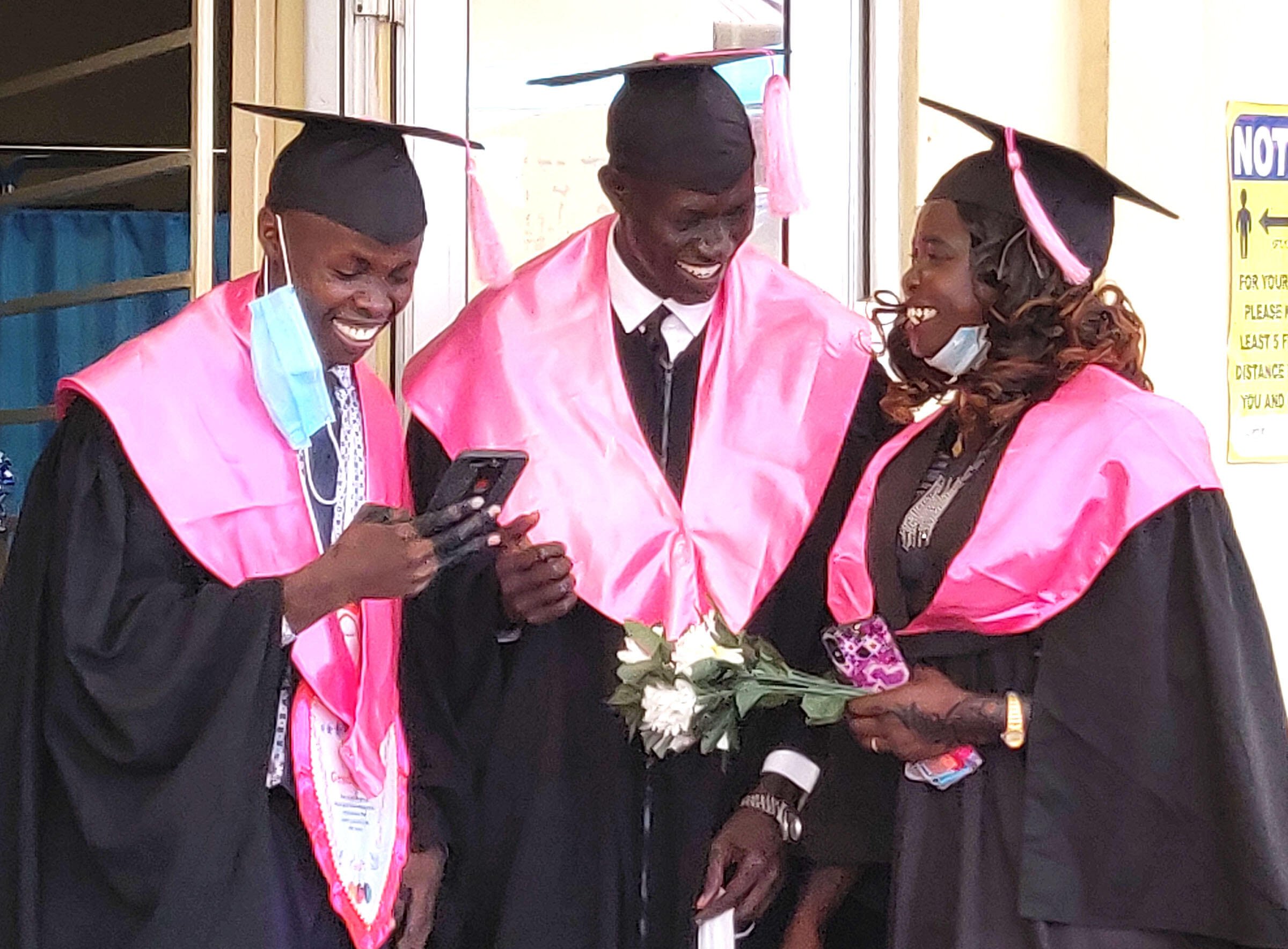Juba, South Sudan – The global experience of battling the COVID-19 pandemic taught the world the value of investing in the health care system, particularly in health care professionals, according to UNFPA, the United Nations Population Fund.
At the graduation ceremony for midwifery and nursing students held at the Juba College of Nursing and Midwifery, Dr. Kidane Abraha, Programme Coordinator for UNFPA’s Strengthening Midwifery Services Project in South Sudan, underscored the indispensable service of health workers and the importance of prioritizing the health system.
“Since last year, we have all been challenged by the new global health risk and many of us lost loved ones. This is an alarm on the importance of investing on having qualified health workers and efficient health infrastructures to save human lives,” Dr. Abraha said. “The COVID-19 pandemic taught us not just the fragility of life but also the crucial role that public health actions and dedicated health care providers can make.”
Dr. Abraha also noted that the work of midwives and nurses is at the very heart of UNFPA’s mandate to promote women’s reproductive health and rights and cannot be overemphasized in South Sudan where maternal deaths remain one of the highest in the world.
“Ensuring that mothers deliver safely, providing access to family planning for those who need it, giving care for survivors of gender-based violence, and educating communities on sexual and reproductive health and rights, as well as prevention of violence against women and girls are just some of the life-saving work that you will do as you leave your learning institutions,” Dr. Abraha told the graduates, emphasizing that these are the embedded in the Programme of Action of the International Conference on Population and Development (ICPD).

“The very nature of the work of midwives and nurses is what makes these professions noble, and such work is of great significance to South Sudan because of the high maternal mortality, gender inequality and prevalent gender-based violence. These are due, in part, to inadequately staffed health facilities such as skilled midwives,” he added.
In a 2017 Maternal Mortality Estimates study, the UN estimated that South Sudan’s maternal mortality ratio is at 1,150 deaths per 100,000 live births. One of the factors contributing to the situation is the huge gap in the number of health professionals. During the Nairobi Summit on ICPD in 2019, the government committed to train and deploy 3,900 more midwives by 2030 to fill the gap.
The Strengthening Midwifery Project, supported by the governments of Canada and Sweden, contributes to the training of more health professionals every year to support the public health care system, specifically to improve maternal health. Before the project started in 2011, South Sudan only had less than 10 trained midwives. Today, the number has climbed to around 900.
UNFPA committed to continue supporting the accreditation of more midwifery and nursing schools, as well as improving the standards for the profession through a regulatory body.
The simple graduation ceremony held at the Juba College of Nursing and Midwifery (JCONAM) celebrated the achievements of 132 students from JCONAM, Kajo Keji Health Science Institute and Wau Health Science Institute.



